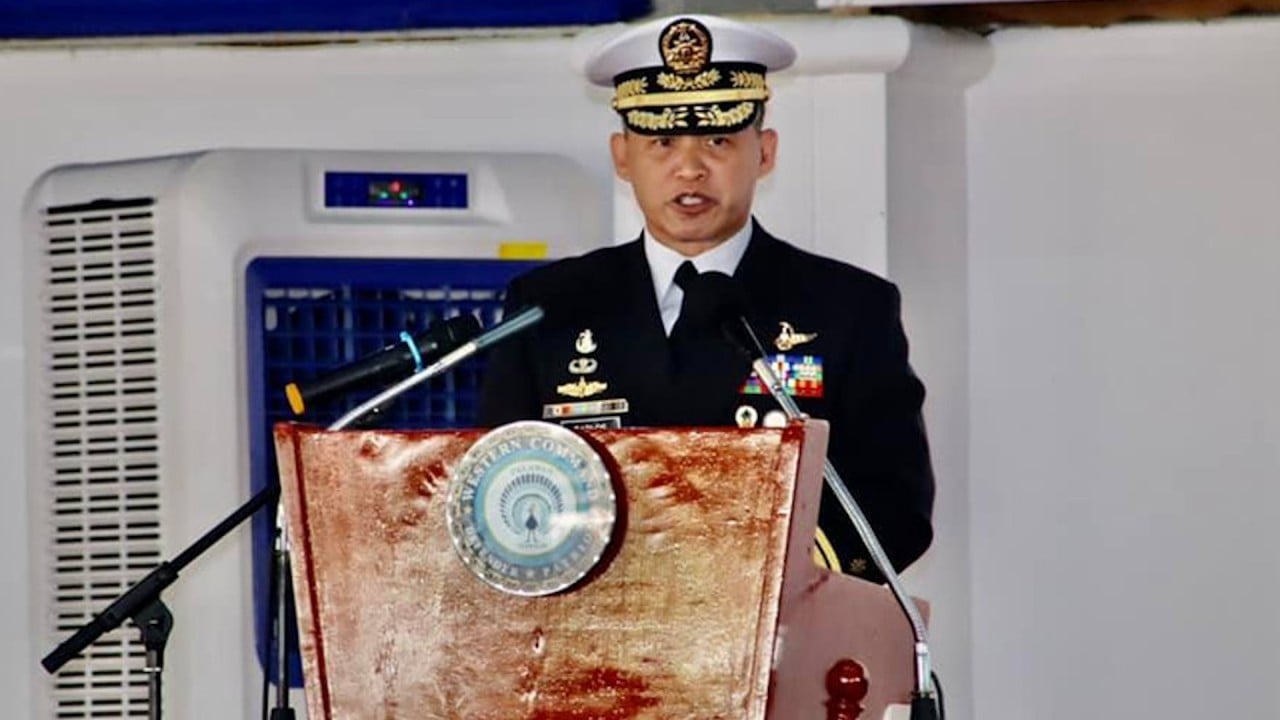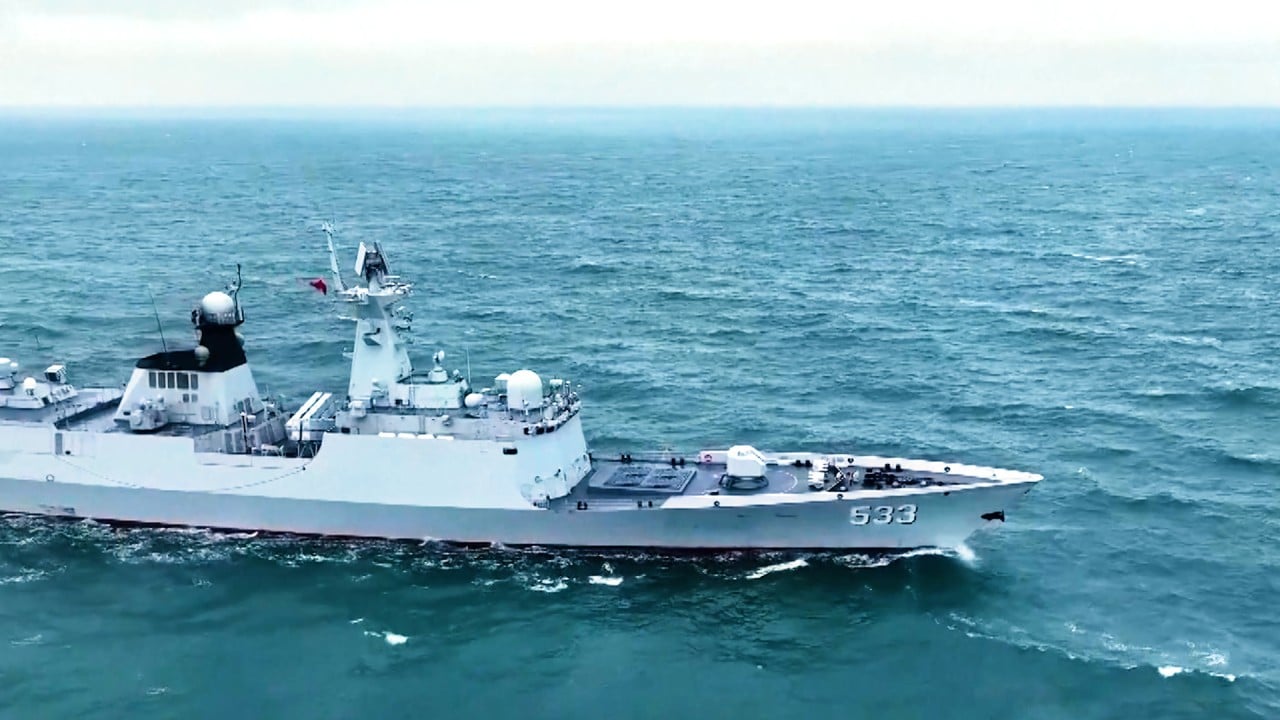World
Chinese defence chief says Taiwan separatists will be ‘crushed’

Dong’s appearance at the high-profile security forum comes six months into his new job and two weeks after the inauguration of Taiwanese leader William Lai Ching-te, a man Beijing has branded a “troublemaker” and “destroyer of cross-strait peace”.
Dong said Beijing was committed to “peaceful reunification” with Taiwan, but the prospect was being “undermined by Taiwan separatists and external forces”.
Asked if major People’s Liberation Army drills after Lai’s inauguration showed that Beijing was truly interested in peaceful reunification, Dong blamed Taiwan separatists for “unilaterally changing the status quo”.
Lai’s inauguration speech “exposed their ambition” of seeking independence, he added.
Dong did not refer directly to the United States but there was little doubt Washington was the “external force” he was accusing of “pushing Taiwan into danger” and making trouble in the South China Sea under the excuse of “freedom of navigation”.
“We will not allow hegemony and power politics to harm the Asia-Pacific. Nor will we allow geopolitical conflicts, cold wars or hot wars to be introduced into the Asia-Pacific. Nor will we allow any country or any force to create war and chaos here,” Dong said.
The United States, in common with most countries, does not recognise Taiwan as an independent state but is opposed to any efforts to take it by force and is legally committed to providing arms to help it defend itself.
In terms of China-US military relations, Dong said China’s position was “consistent and clear” and it was “open to exchanges and cooperation”, but this required effort from both sides.
“As we see it, it is because the two militaries have differences that there is a greater need for communication. Even though we have different development paths, we should not pursue confrontation with each other,” Dong said.
On Friday Dong and his US counterpart Lloyd Austin had a rare, face-to-face meeting – one that Beijing described as “positive, practical and constructive”.
While the US does not have any territorial claims in the disputed waters, it is committed to upholding freedom of navigation in the South China Sea and supporting its allies, including the Philippines.
Beijing’s expansive claims in the waterway overlap with those of the Philippines, Vietnam, Malaysia and Brunei.
Dong said peace was “vital” for the region’s prosperity and countries in the region should “not allow disputes or differences to stand in the way of development and cooperation”.
“Thanks to concerted efforts made by countries in the region, the South China Sea has seen overall stability,” Dong said.
Nevertheless, a “certain country emboldened by outside powers” had “broken bilateral agreements and its own promises, made premeditated provocations and created false scenarios to mislead the public”.
“This act will endanger the security and stability of the region and it will eventually backfire,” Dong said, apparently referring to the Philippines.
“We hope this country can return to the right track of dialogue and consultation, and work with other countries in the region to make the South China Sea a sea of peace, friendship and cooperation.”
China rejected an international ruling in 2016 that its territorial and maritime claims have no legal basis and has continued to build outposts on islands and atolls that it controls.
Dong said he hoped the forum would help contribute to regional stability, rather than becoming a verbal “wrestling” match.
Asked about Dong’s speech, a US official, speaking on condition of anonymity, said: “Every year for three years, a new Chinese defence minister has come to Shangri-La. And every year, they’ve given a speech at complete odds with the reality of the [People’s Liberation Army’s] coercive activity across the region. This year was no different.”
Bonnie Glaser, managing director of the Indo-Pacific programme at the German Marshall Fund, said there was a “huge gap” between China’s words and its deeds, reflecting a “long-standing problem”.
“[Dong’s] performance here is similar to China’s performance in the international community. No observance of rules, no observance of international law,” Glaser said, pointing to his refusal to answer certain questions.
On China’s major flashpoints, Glaser said Dong’s remark on Taiwan was “very sharp” but there was nothing new on the South China Sea.
But PLA senior colonel Cao Yanzhong said Dong had to give a thorough explanation of Beijing’s position because Lai was testing Beijing’s bottom line, posing a “real danger”.
“I think everyone should recognise this … The risk is very real, but the Democratic Progressive Party authorities conceal and downplay this to the people on the island. This approach actually makes the Taiwanese people not that aware of the risk of war in the strait,” Cao said.
Cao said Dong’s speech reflected Beijing’s “common security” approach while the US pursued “the security of blocs”.









:max_bytes(150000):strip_icc()/roundup-writereditor-loved-deals-tout-f5de51f85de145b2b1eb99cdb7b6cb84.jpg)


